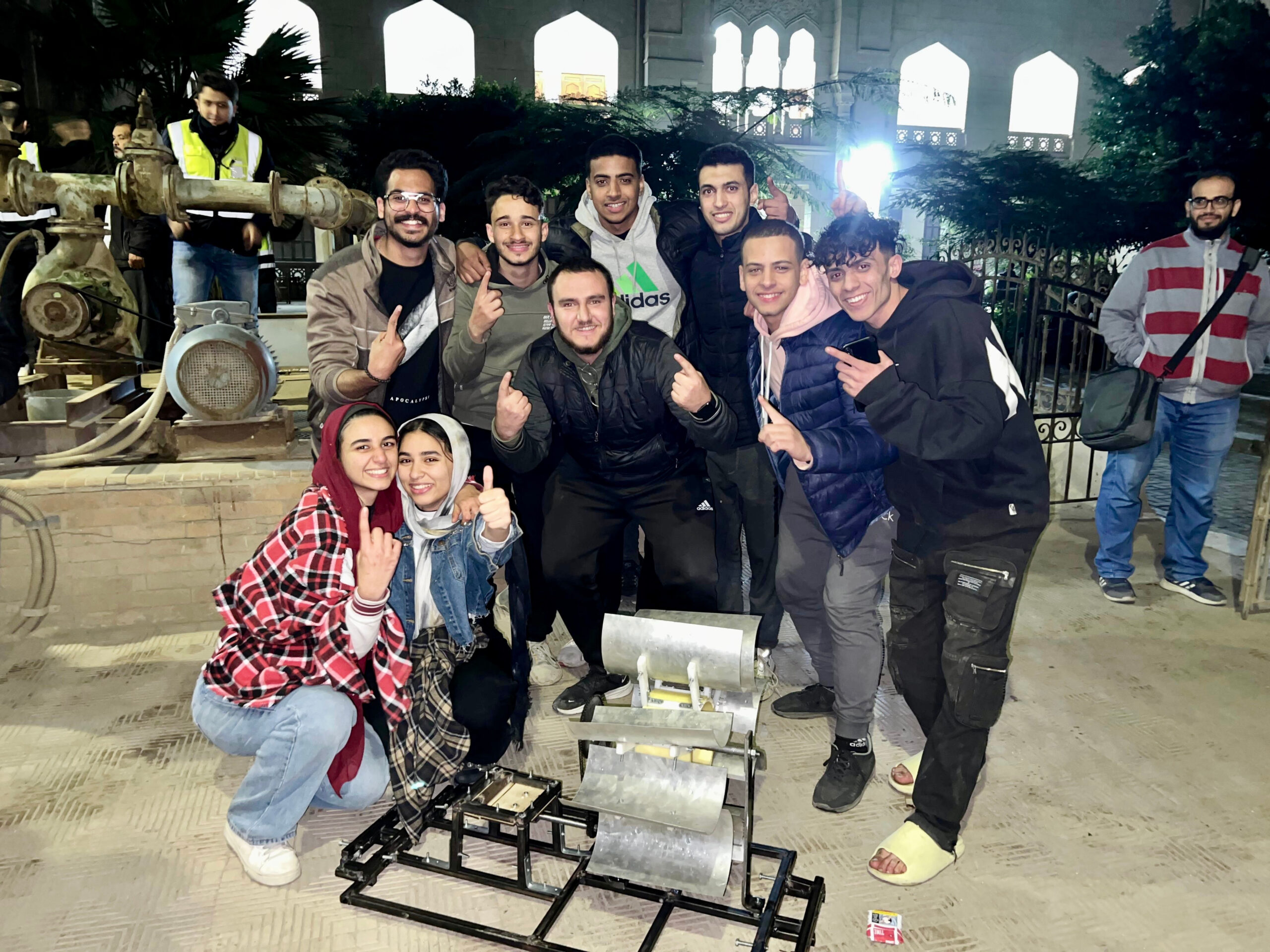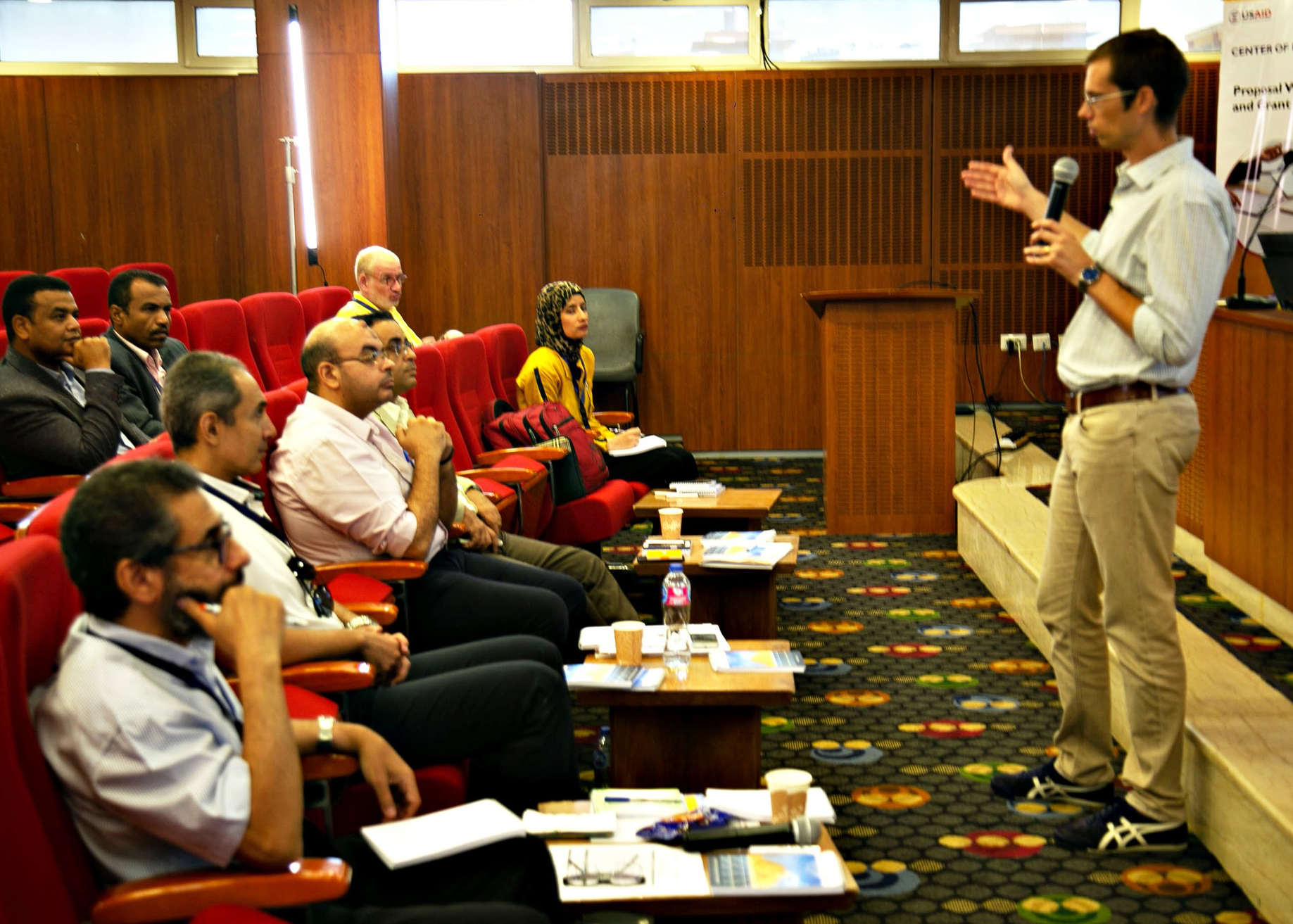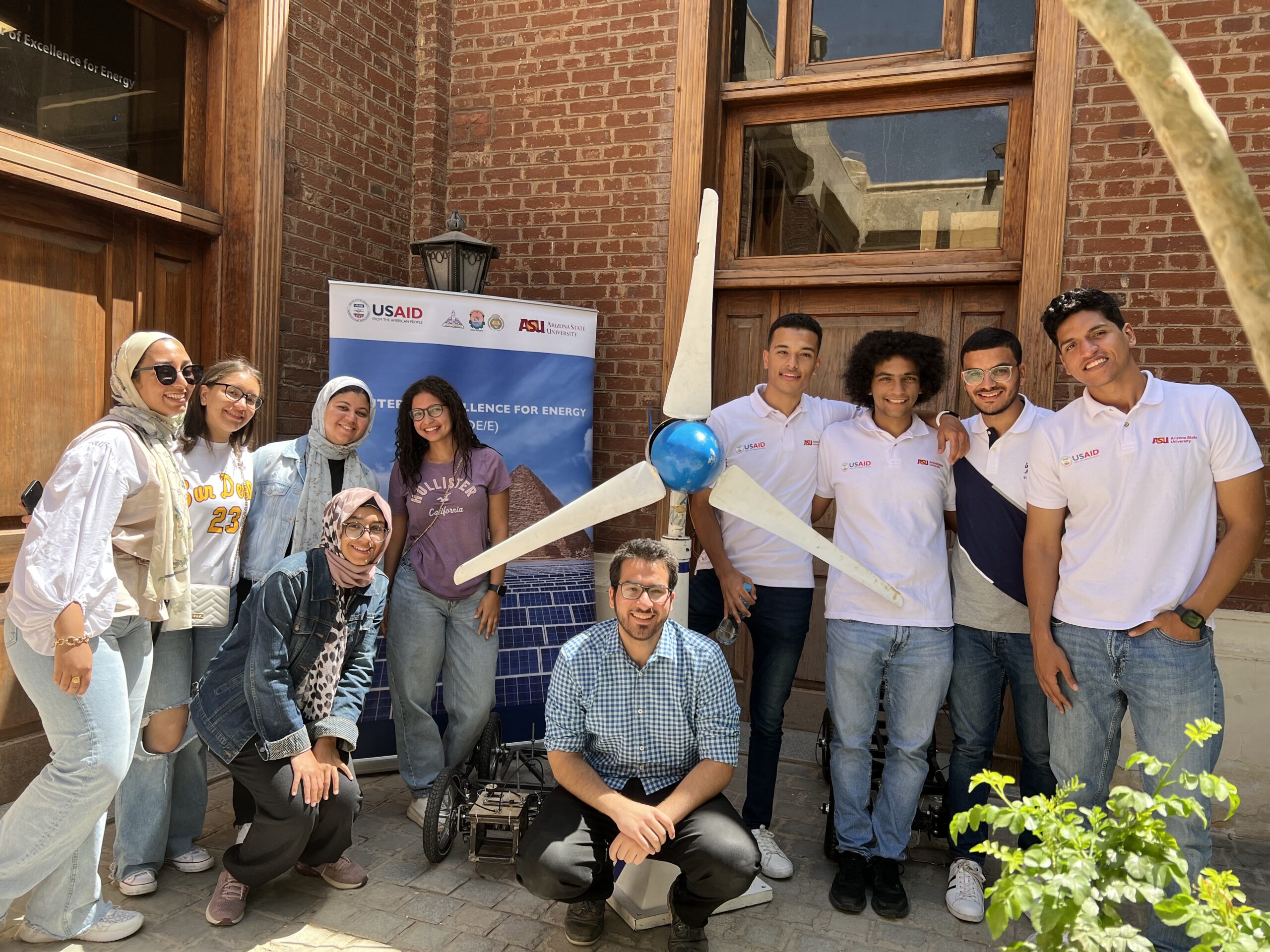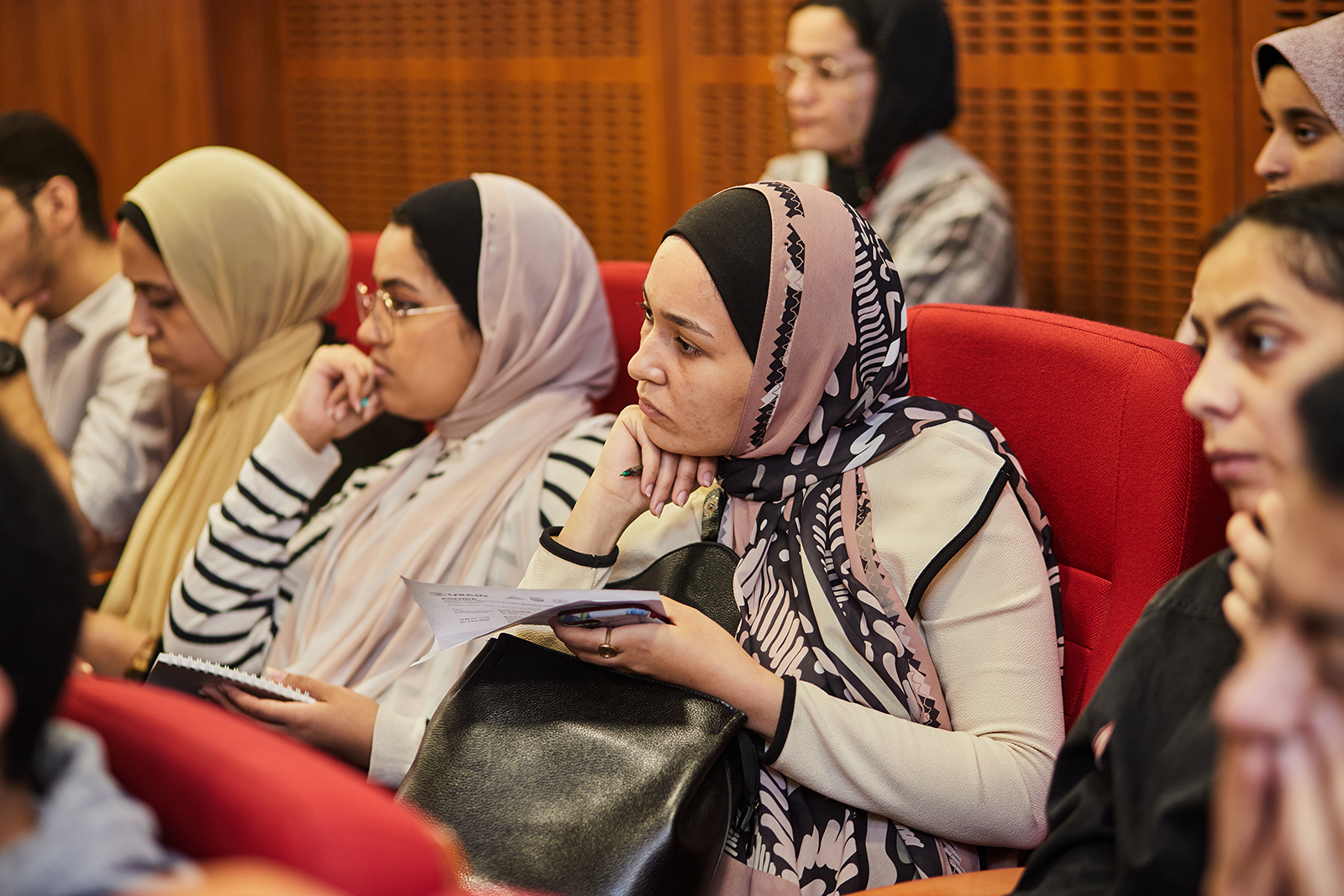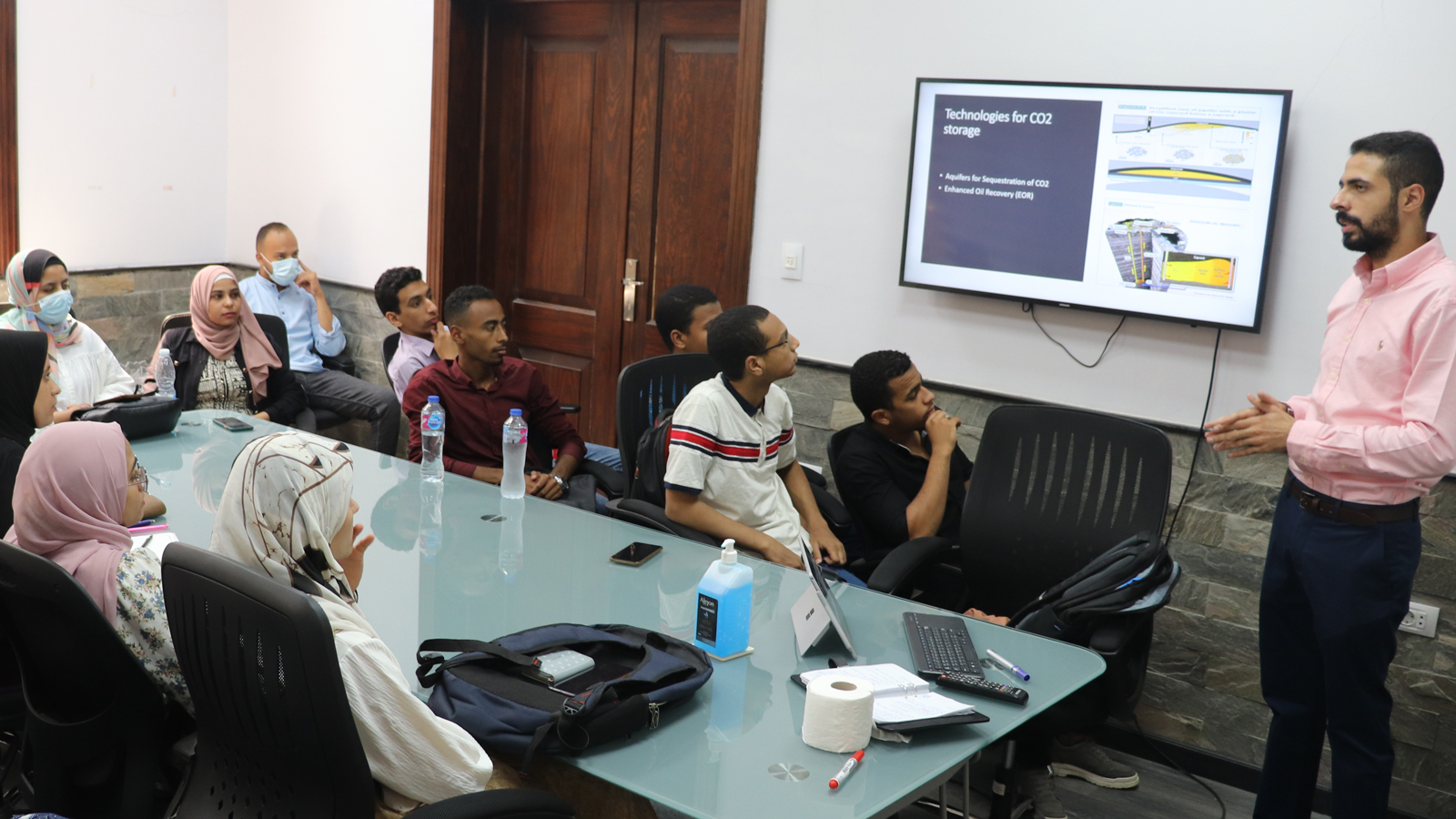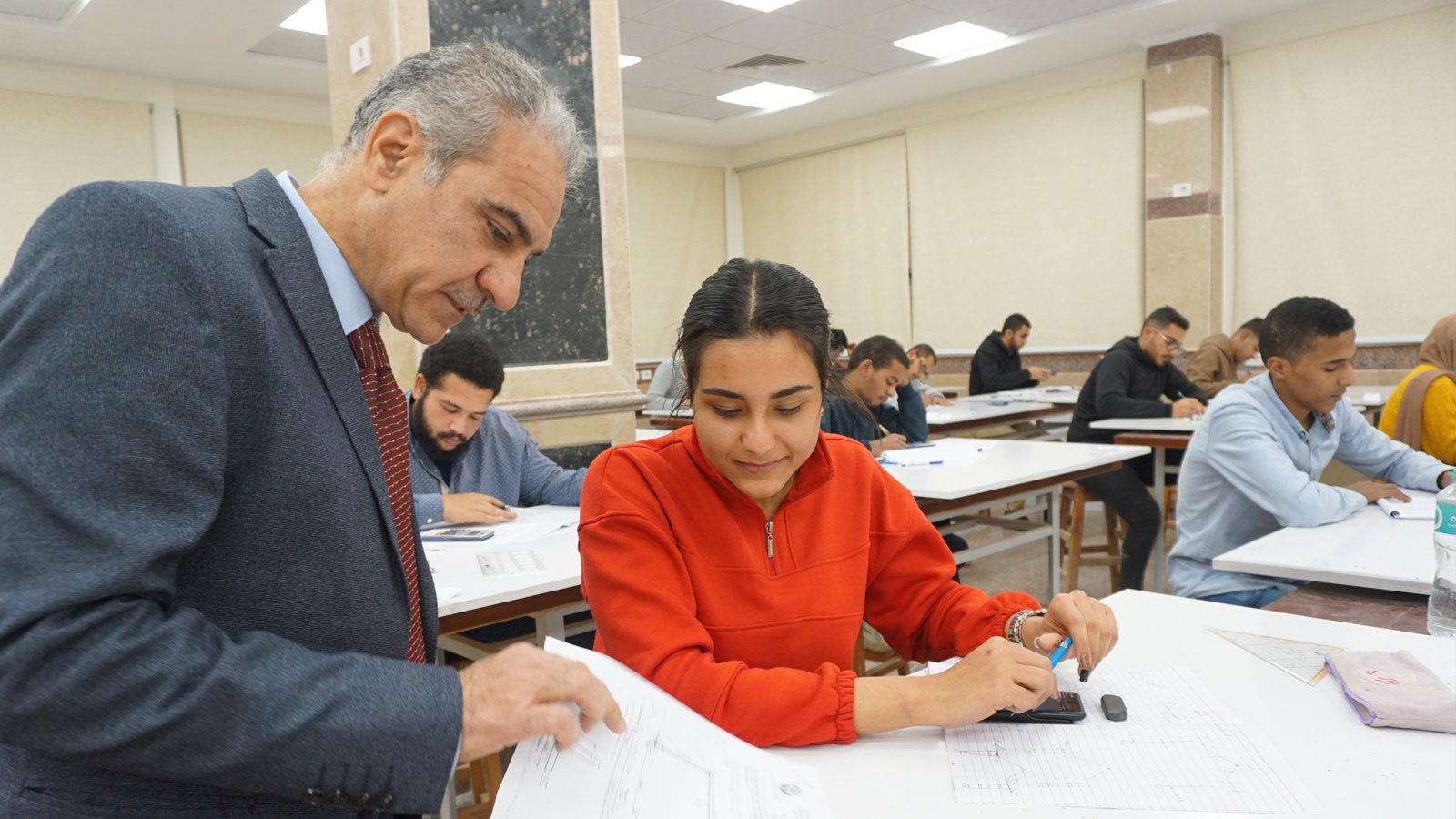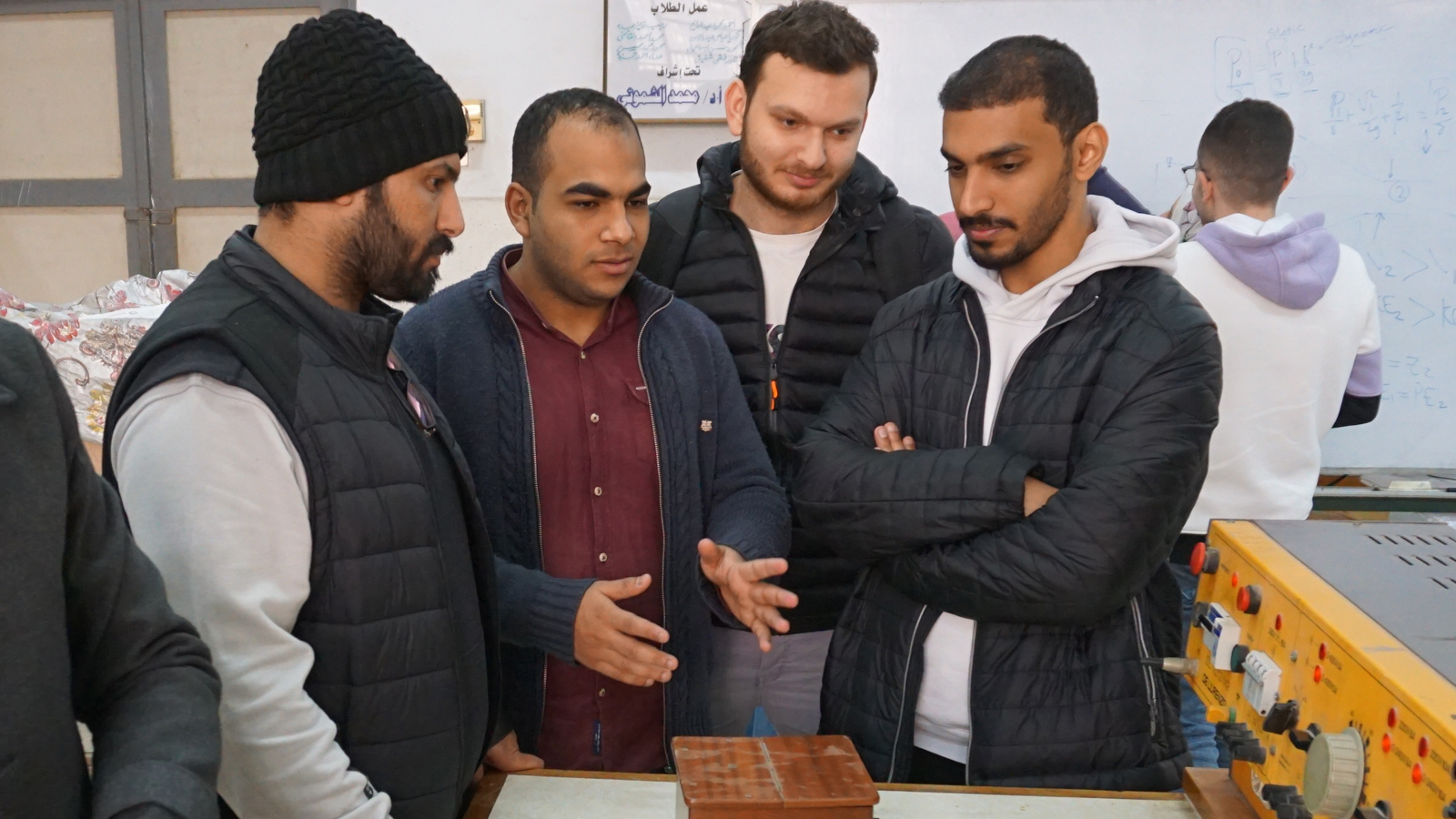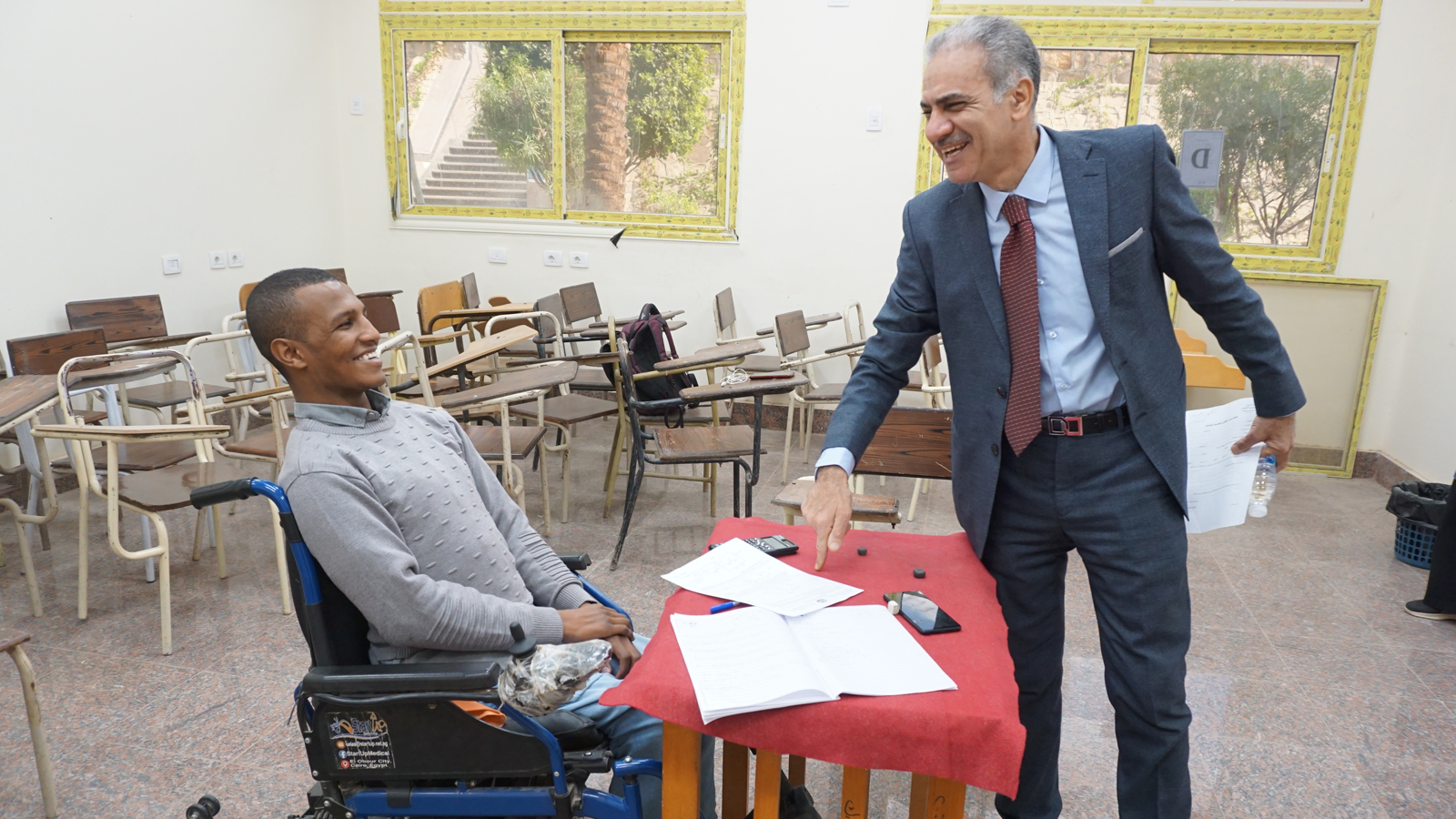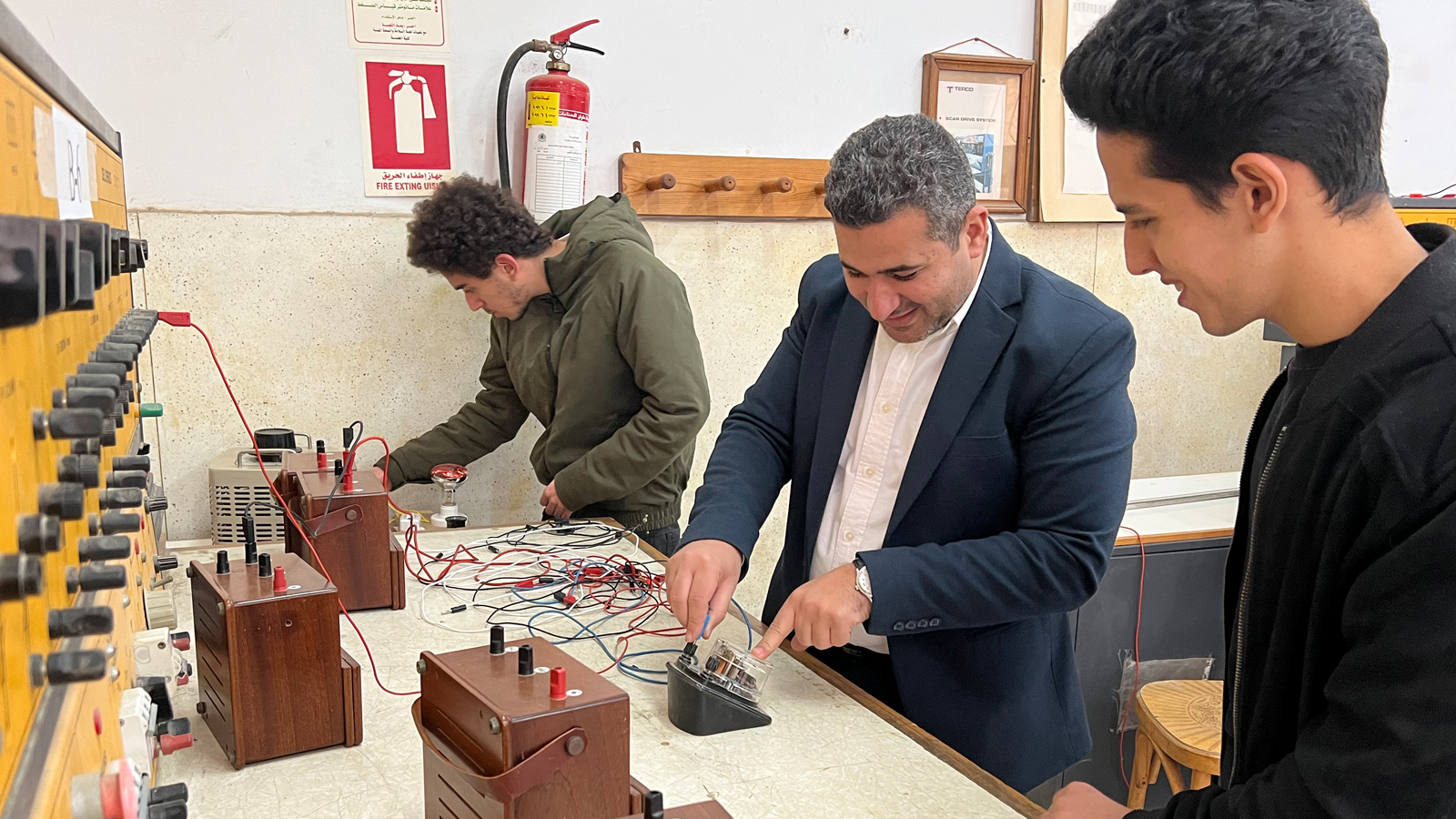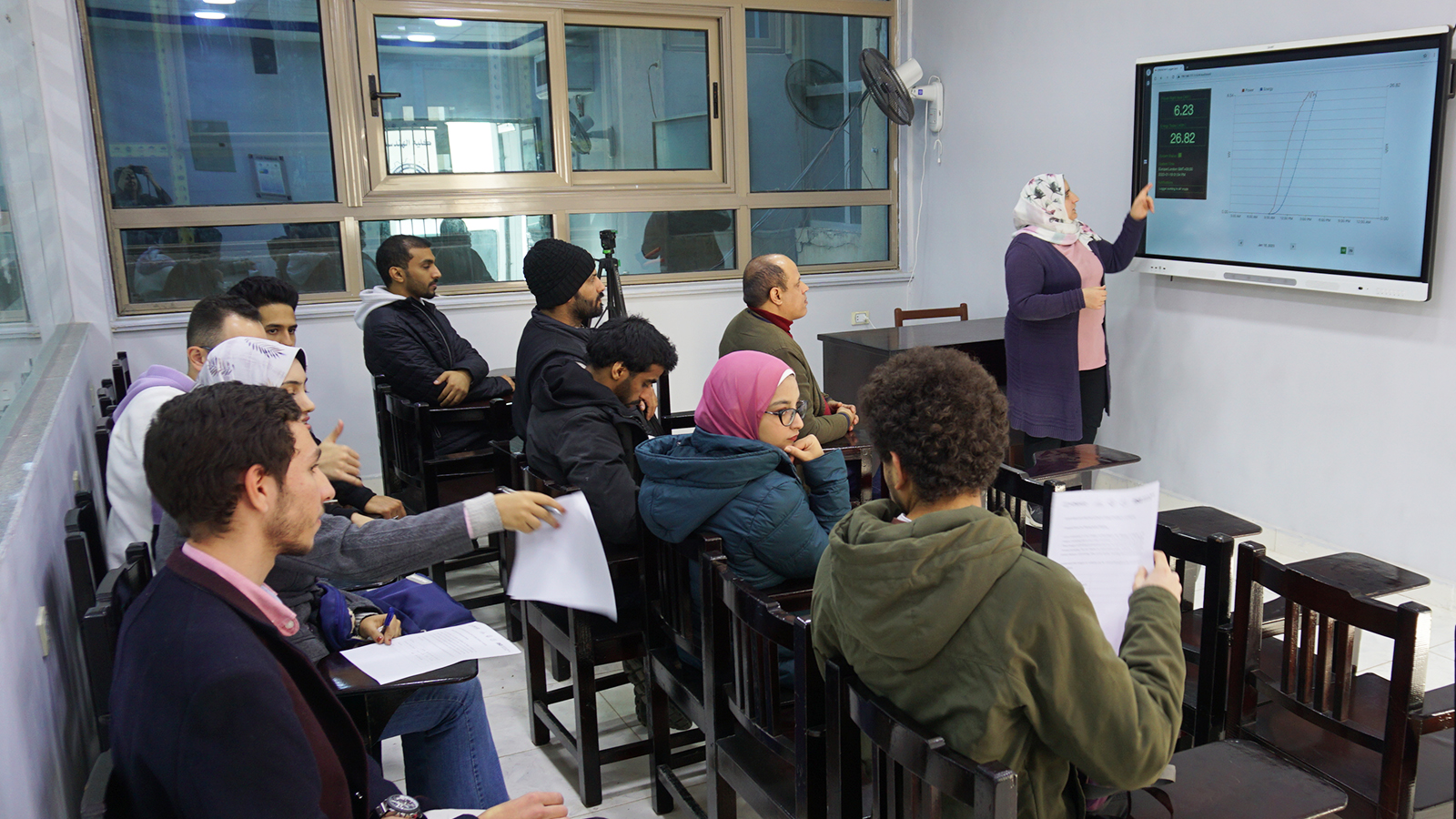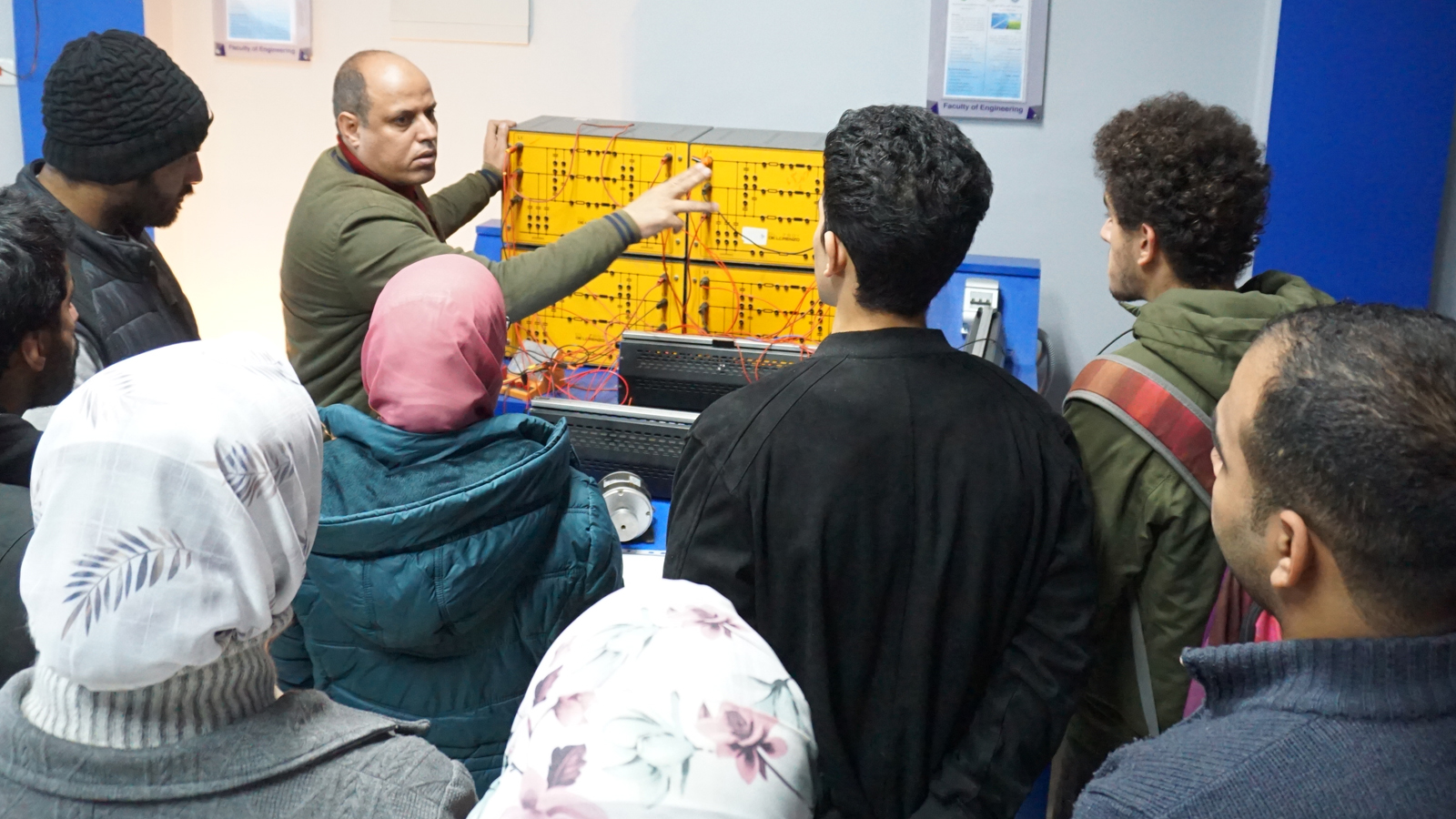Instructional Innovation and Curriculum Development
One of the goals of the USAID-funded Center of Excellence for Energy (COE/E) is to develop innovative teaching methods and curricula to improve the relevance and quality of Egypt’s higher education in energy. In conjunction with Egypt’s Ministry of Higher Education and Scientific Research, Arizona State University and Egyptian partner universities, energy industry and governmental leaders, the center is identifying gaps in higher education curricula, recommending new courses to add to energy programs and courses to improve, and offering training to advance effective teaching methods. In 2022, the center formed the Curriculum Development Committee to help inform the development. This committee and its working groups have conducted an evaluation of current curricula and pedagogy and offered suggestions for improvement. In 2023, the COE/E conducted a curriculum assessment, a laboratory assessment, and a teaching methods assessment as well as hosting various workshops and seminars to extend learning opportunities.
Curriculum Assessment
The COE/E, the Curriculum Development Committee, and working group members have collected, and will continue to collect, primary and secondary data to review and use to identify gaps in undergraduate degree programs currently offered at the three Egyptian partner universities (EPUs). Data is collected through in-person visits to university facilities and laboratories, interviews with instructors, interviews with undergraduate students, and discussions with relevant stakeholders.
Initial Assessment:
In early 2023, the curriculum working groups completed a high-level assessment of degree programs, an in-depth review of four key laboratory courses each in electrical engineering and mechanical engineering, and a review of existing laboratory equipment at the three universities. While the technical content was found quite solid and rigorous covering aspects of many types of renewable energy from both the electrical and mechanical points, the assessment showed possible gaps in existing programs and needs such as: lack of sufficient laboratory equipment to allow hands-on experience for all students, need for more courses in energy sustainability, energy policy, and the social science aspects of energy, and a need for more advanced and/or relevant laboratory experiments and projects.
The center proposed to incorporate low-cost, commercially available, portable kits for electronic and thermodynamic experiments that can be done by students anywhere at any time. These kits convert student laptops into a suite of electronic instruments such as oscilloscopes, power supplies, spectrum analyzers, etc. The COE/E also proposed adding courses in the following areas:
1) Energy policy and leadership
2) Human and social dimensions of energy systems
3) Community-based energy innovation
4) Clean energy transition planning
International Course Comparison:
In late 2023, the Arizona State University (ASU-US) curriculum team, in conjunction with the committee, conducted a full analysis of three programs each from Ain Shams University, Mansoura University, and Aswan University (nine programs in total), comparing them to the top eight international energy degree programs. A list of courses that were missing from Egyptian partner university (EPU) programs, including a ranking of whether the courses were core (high-priority) or elective, was sent to the Curriculum Development Committee for review, and then on to each university for their individual review and assessment.
Each university reported whether the additional course topics were covered in any areas of the curriculum, such as embedded within other courses as part of its syllabus. Utilizing that feedback, the team, along with several ASU-US faculty, reviewed each of the missing course topics against the feedback from the EPUs to confirm adequate coverage and provided revised recommendations. The recommendations were ranked based on the importance of the topic in the standard as well as the amount of curriculum change necessary to meet said requirement.
Results:
The three EPUs approved the curriculum recommendations, and 11 new courses are under development as of Fall 2024: seven at Ain Shams University over the next two academic years, two in Mansoura University’s 2026 bylaws, and two at Aswan University.
COE/E started identifying relevant experts at ASU-US and the resources needed to create these courses.
The updated course offerings and expanded coverage will bolster the capacity of the EPUs to train Egypt’s future energy workforce. The introduction of globally benchmarked courses will enable these institutions to remain competitive internationally, attracting high-caliber students and faculty while providing a pipeline of skilled graduates to the domestic energy sector.
Laboratory Equipment Assessment
In 2023, the center, in conjunction with stakeholders, conducted a laboratory assessment of the teaching and research laboratories at the three EPUs and worked with EPUs to submit a list of requested equipment. Each piece of equipment requested was accompanied by a needs assessment, description of which courses and research experiments would benefit from the equipment, summary and detailed specifications of the equipment, vendor recommendations, and budgetary considerations. This list was evaluated by a technical committee and a finance committee. Based on the final approved list of teaching laboratory equipment, Requests for Quotation (RFQs) were sent out, purchase orders were made, and the first round of equipment began arriving at EPUs in January of 2024.
As of September 2024, orders have been processed for nearly all equipment, and deliveries are ongoing, with 13% of equipment installed in the EPUs’ new energy laboratories.
The range of equipment at each university covers curricula of years 1 to 4 with an average of 150 to 300 students benefitting from them annually. The new tools will not only support critical energy and renewable energy courses, such as Electric Vehicle Technology, Energy Conversion, and Refrigeration and Air Conditioning, but will also enable professors to conduct advanced research and develop industry-aligned case studies that reflect current sector trends.
Teaching Methods Assessment and Workshop
In 2023, an ASU-US team conducted a teaching methods assessment, meeting with faculty and teaching staff, conducting focus groups, holding one-on-one sessions, and observing in classrooms at EPUs. They also conducted a comprehensive survey on active learning, seeking to understand how faculty members currently utilize active learning strategies in their classrooms. The survey objective was to assess the current utilization of active learning strategies by faculty members, identify the various approaches utilized by faculty to generate student interactions, such as asking questions, think-pair-share, and other interactive methods, and determine the effectiveness of active learning strategies in fostering student engagement and knowledge retention. The survey was disseminated through an online platform, ensuring ease of access and anonymity for respondents. It was determined that the curriculum and instruction mentorship team will help the EPU faculty improve instructional and laboratory courses with a focus on emergent renewable technologies (wind, solar, nuclear, etc.). Each EPU has identified 2-4 classes and faculty members that will be considered as part of this year’s efforts.
In May of 2023, the team led the “Innovative Teaching Methods Workshop“, which presented strategies to incorporate active learning into classrooms, including immediate strategies in classroom practices, incremental strategies to adjust course assignments and assessments, structural strategies, and fundamental strategies to completely overhaul courses and program objectives.
Attended by over 50 faculty members from the three universities, the session focused on problem-solving activities, comprehension questions, and student attention span. The workshop received a 90% satisfaction rate, with participants expressing strong interest in further exposure to and practice with active learning techniques.
Additional Curriculum Enhancement
The COE/E, in conjunction with its partner universities, offers a variety of workshops, exchanges and trainings, seminars, and competitions to bolster scholarly activities and engagement. The COE/E has offered workshops in energy transitions, proposal writing, teaching methods, entrepreneurship, and more. It also hosts technical workshops in energy related areas as well as a virtual “Energy Exchange” seminar series to facilitate binational discussions on energy research pertinent to Egypt’s energy challenges. The COE/E also works with EPUs to offer student competitions such as the recent student water turbine competition, which enabled students to apply theoretical knowledge in a practical context, deepening their understanding of concepts learned in the machine elements design, fluid mechanics and turbomachinery courses.
